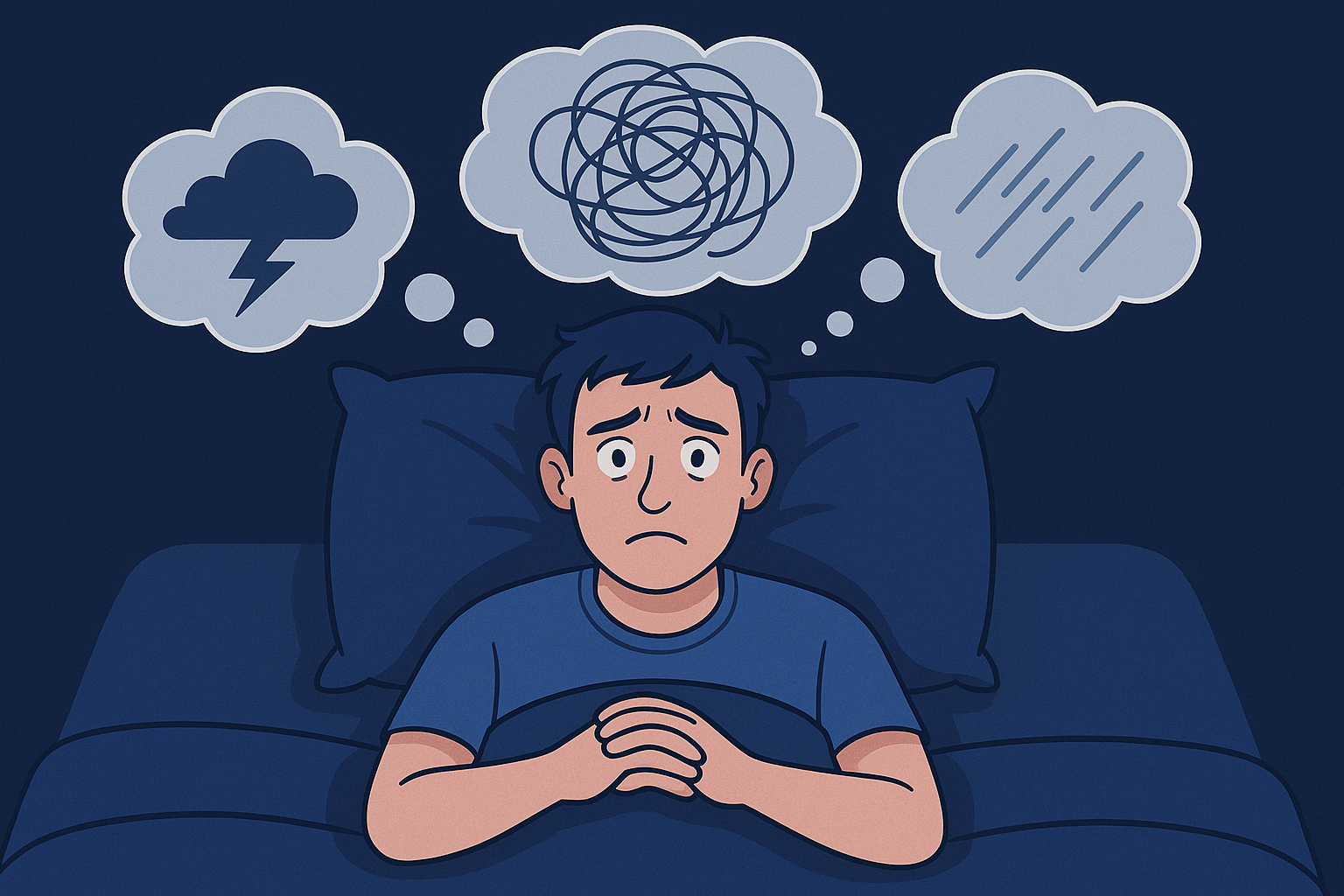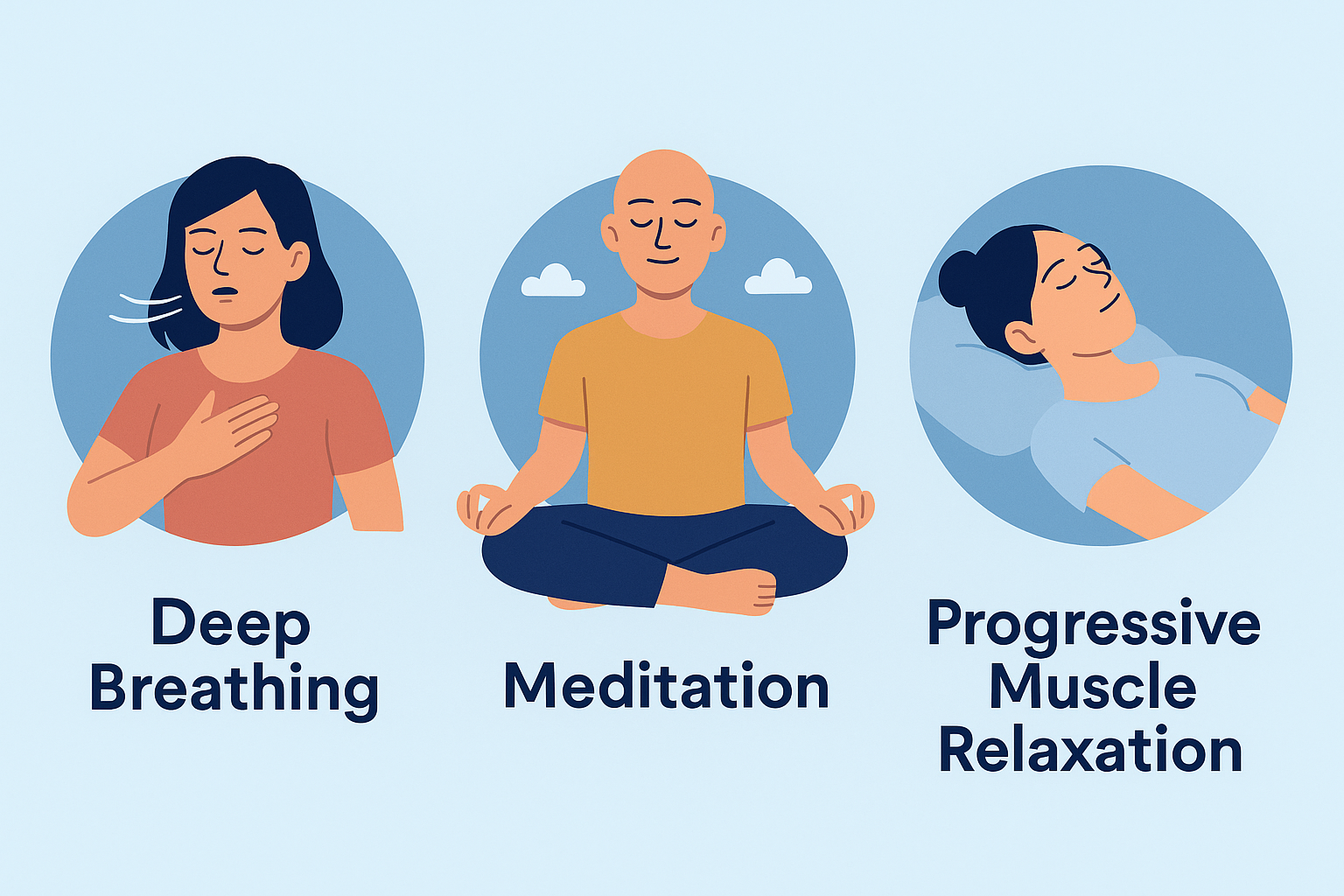Mind-Body Connection: How Stress and Anxiety Impact Your Sleep and What to Do About It
The Unseen Battle: When Your Mind Keeps You Awake
In our fast-paced world, stress and anxiety have become unwelcome companions for many, often extending their reach into the quiet hours of the night. The profound connection between our mental state and our ability to achieve restful sleep is undeniable. For those desperately seeking how to sleep better, understanding this intricate mind-body link is not just beneficial—it's essential. This article will explore how stress and anxiety disrupt your sleep patterns, delve into the physiological mechanisms at play, and provide practical, actionable strategies, including the role of natural supplements, to calm your mind and reclaim your nights.

The Vicious Cycle: How Stress and Anxiety Disrupt Sleep
When you experience stress or anxiety, your body activates its "fight or flight" response, a primal survival mechanism. This triggers the release of hormones like cortisol and adrenaline, which increase heart rate, blood pressure, and alertness—all of which are counterproductive to sleep. This physiological state of hyperarousal can make it incredibly difficult to fall asleep, a common complaint for those wondering how to sleep better. Even if you do manage to fall asleep, the quality of your rest is often compromised, leading to frequent awakenings and a feeling of being unrefreshed in the morning.
This creates a vicious cycle: stress and anxiety disrupt sleep, and sleep deprivation, in turn, exacerbates stress and anxiety. Lack of sleep impairs emotional regulation, making you more susceptible to negative thoughts and feelings, which further fuels the cycle. Breaking this loop requires a conscious effort to manage stress and promote relaxation, both during the day and, especially, in the hours leading up to bedtime. It's not just about being tired; it's about being calm enough to allow sleep to happen.
Can stress cause nightmares or vivid dreams?
Yes, high levels of stress and anxiety can lead to more frequent and intense dreams, including nightmares. This is because stress can disrupt the normal sleep cycle, particularly the REM (Rapid Eye Movement) stage, where most dreaming occurs. Processing intense emotions during sleep can manifest as unsettling or vivid dreams, further impacting sleep quality.
Practical Strategies: Calming Your Mind for Restful Nights
Learning how to sleep better when stress and anxiety are present requires a multi-faceted approach that addresses both the mental and physical aspects of relaxation. Integrating mindful practices into your daily routine can significantly reduce the physiological arousal that prevents sleep. These strategies aim to activate your parasympathetic nervous system, shifting your body from a state of 'fight or flight' to 'rest and digest'.
One of the most effective techniques is deep breathing exercises. Simple practices like diaphragmatic breathing can slow your heart rate and calm your nervous system almost immediately. Mindfulness meditation, even for just 10-15 minutes a day, can train your mind to observe thoughts without getting entangled in them, reducing rumination before bed. Progressive muscle relaxation, where you tense and then relax different muscle groups, can release physical tension accumulated throughout the day. Establishing a consistent pre-sleep routine that includes these calming activities signals to your body that it's time to wind down, making the transition to sleep much smoother.

How can I practice mindfulness if my mind is constantly racing?
Start small. Even 5 minutes of focused breathing or a guided meditation can make a difference. Don't aim for a completely empty mind; simply observe your thoughts without judgment. Over time, your ability to detach from racing thoughts will improve, making it easier to calm your mind and learn how to sleep better.
The Role of Adaptogenic Supplements: Natural Allies for Stress and Sleep
While lifestyle changes and mindful practices are foundational, certain natural supplements can provide additional support in managing stress and anxiety, thereby improving your ability to understand how to sleep better. Adaptogens are a unique class of herbs that help your body adapt to stress, promoting balance and resilience. They don't directly induce sleep but rather help normalize physiological functions that are often disrupted by chronic stress, such as cortisol levels and nervous system activity.
Common adaptogens like Ashwagandha, Rhodiola Rosea, and Holy Basil have been studied for their stress-reducing properties. Ashwagandha, for instance, is known to lower cortisol levels and promote a sense of calm, making it easier to unwind before bed. Other supplements, such as L-Theanine (as discussed in a previous article), magnesium, and certain B vitamins, also play crucial roles in supporting nervous system health and neurotransmitter balance, which are vital for both stress management and quality sleep. When choosing supplements, look for high-quality, third-party tested products and consider consulting a healthcare professional to ensure they are appropriate for your individual needs.

How do adaptogens differ from traditional sedatives?
Adaptogens work by helping the body adapt to stress and restore balance, rather than directly sedating the nervous system. They don't typically cause drowsiness or have the same risk of dependency as traditional sedatives. Instead, they aim to improve your body's natural resilience to stress, which can indirectly lead to better sleep quality by reducing anxiety and hyperarousal.
Frequently Asked Questions
Understanding the intricate link between your mind and sleep is crucial for those seeking how to sleep better. Here are some common questions about managing stress and anxiety for improved sleep.
- Can therapy help with sleep problems related to anxiety?
Absolutely. Cognitive Behavioral Therapy for Insomnia (CBT-I) is a highly effective treatment that addresses the thoughts and behaviors that prevent sleep. It can be particularly beneficial for individuals whose sleep issues are rooted in anxiety or stress. - Is it better to exercise in the morning or evening for stress relief and sleep?
Morning or early afternoon exercise is generally recommended for better sleep, as it can help regulate your circadian rhythm. Evening exercise, especially intense workouts, can be stimulating and raise body temperature, potentially interfering with sleep. However, gentle activities like yoga or stretching in the evening can be beneficial for stress relief. - How long does it take to see improvements in sleep after managing stress?
Improvements can vary greatly depending on the individual and the severity of stress. Some people may notice subtle changes within a few days of implementing stress-reducing techniques, while for others, it might take several weeks or months to establish consistent, restful sleep. Consistency in practice is key. - Are there any dietary changes that can help reduce stress and improve sleep?
A balanced diet rich in whole foods, fruits, vegetables, and lean proteins can support overall mental and physical health, indirectly aiding stress management and sleep. Limiting caffeine and alcohol, especially in the evening, and avoiding heavy meals close to bedtime are also crucial for better sleep.
Conclusion: Reclaiming Your Nights, One Calm Breath at a Time
The intricate dance between your mind and body profoundly impacts your sleep. When stress and anxiety take center stage, restful nights often become elusive. However, by understanding this powerful mind-body connection and implementing practical strategies—from mindful techniques to the strategic use of adaptogenic supplements—you can effectively calm your nervous system and teach your body how to sleep better.
Remember, this is a journey of consistent effort and self-compassion. Each small step you take to manage stress and promote relaxation contributes to a more peaceful mind and, ultimately, a more restorative night's sleep. Embrace these tools, and you'll not only improve your sleep but also enhance your overall well-being and resilience in the face of life's challenges. For further support, explore our curated selection of natural sleep aids designed to complement your journey to tranquility.
